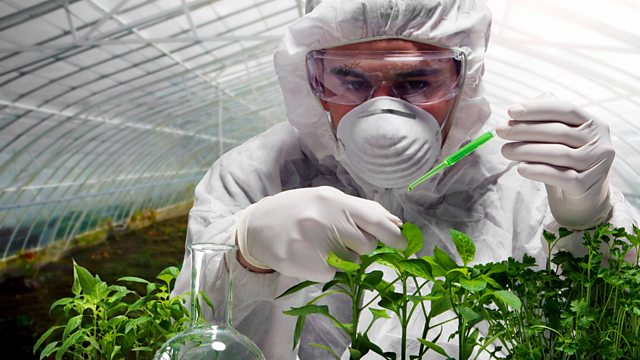GM Crops
As negotiators meet in Copenhagen to discuss climate change, Richard Hollingham asks if Europe should give a signal to the developing world and allow the cultivation of GM crops.
Negotiators at the United Nations Framework Convention on Climate Change in Copenhagen are hoping to agree a new global climate treaty to limit greenhouse emissions.
Richard Hollingham discusses the way biotechnology can help us develop new crops able to withstand harsher growing conditions. He talks to some of the biotech companies that want the European Commission to relax its attitude towards GMOs (genetically modified organisms). Richard also talks to the EC itself about its policy on GM products.
Crops genetically adapted for climate change need to be drought and pest resistant and able to thrive in poor quality soil. They also need to provide improved yields. These crops are controversial, especially in Europe. Historically, European legislators have taken a very cautious attitude towards genetically modified food and animal feedstuff.
Currently, the European Commission permits the import of genetically modified cotton, maize, oilseed rape, soybean and sugar beet for human and animal consumption. So far, the EC has issued just a single licence permitting one variety of GM maize to be grown in Europe.
At present, there are about 50 GM products awaiting approval from the European Commission, of which 19 are for cultivation. The companies that produce biotech crops want the EC to relax its moratorium on new product approvals. Apart from the obvious commercial opportunities, they argue that if Europe relaxes its attitude towards GM crops, developing nations will be more likely to accept them too, and it is the developing nations that will be most affected by climate change. In that sense, Europe is becoming a crucial battlefield as companies lobby to get new crops licensed for cultivation.
There is still huge opposition within Europe to genetically modified crops. But is climate change beginning to alter the terms of the debate? If the world is to sustain its current population levels at a time when it is becoming increasingly difficult to cultivate traditional crops, have we now reached the point when Europe needs to take a more tolerant attitude towards the cultivation of GM crops?
Last on
More episodes
Broadcast
- Mon 7 Dec 2009 21:00Βι¶ΉΤΌΕΔ Radio 4
Podcast
-
![]()
Frontiers
Programme exploring new ideas in science and meeting the researchers responsible


